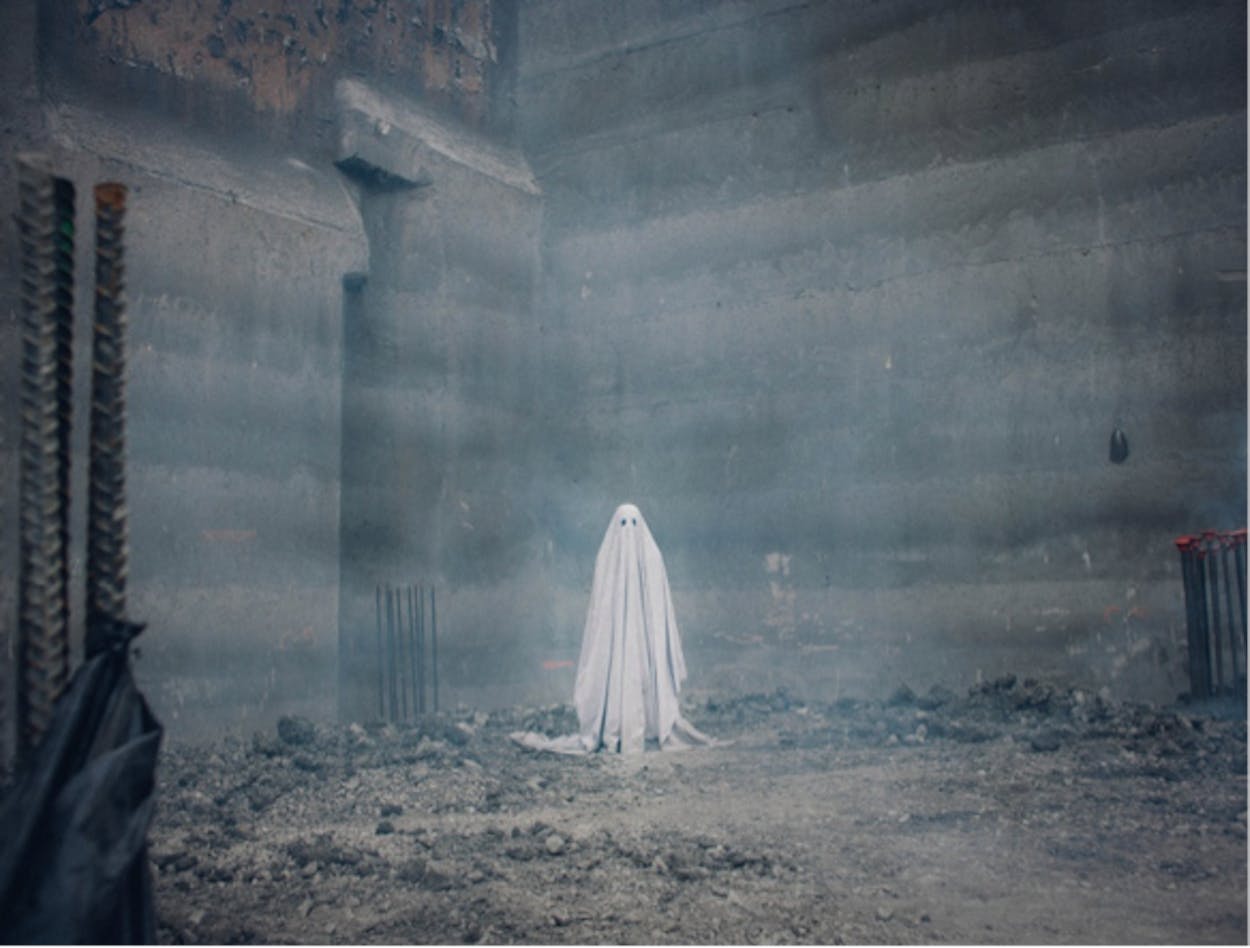David Lowery is a Sundance kid. Back in 2011, the filmmaker made his first career moves at the Park City, Utah, festival on the strength of a short film, Pioneer, earning Lowery a series of meetings around Hollywood and laying the groundwork for his breakout feature, Ain’t Them Bodies Saints, which premiered at Sundance in 2013. This month, after a ride on the Hollywood blockbuster machine with Pete’s Dragon (2015), 36-year-old Lowery returned to Park City where he had a hand in several movies in addition to his latest film: A Ghost Story, an impressionistic take on the haunted-house genre that has become one of the most discussed films of Sundance 2017.
Lowery has been a key figure in a burgeoning film scene in Dallas, where he hired most of A Ghost Story’s crew and supporting cast. “I approached this movie with the mindset that I only wanted to make it with friends,” Lowery said by phone in an exclusive post-festival interview with Texas Monthly. “We kept it a secret. I’m in a lucky position where I can call Casey [Affleck] and Rooney [Mara] and ask them, as friends, if they want to participate in a crazy experiment with me in Texas for a couple of weeks.”
The result marks another step forward both artistically and professionally for Lowery. Prominent cinephile news website Indiewire critic David Ehrlich calls A Ghost Story, “the best film of Sundance 2017,” and Richard Lawson of Vanity Fair writes, “Lowery’s film transcends experiment and becomes almost a new method of cinematic thought.”
Lowery didn’t necessarily anticipate such positive reactions. Going into Sundance, which ran from January 19-29, he said, “We just didn’t know what this movie would become. We thought we might have to bury it. We didn’t know if what we thought would work would appeal to other people. So the fact that audiences are responding, that other filmmakers are responding, that critics are responding–it really is meaningful to me and my whole team.”
It’s hard to summarize the plot of A Ghost Story without making it sound like a lo-fi remake of 1990 Patrick Swayze vehicle Ghost. A young couple shares a love that transcends death, and we watch Affleck’s character as he observes Mara from beyond the grave. But the similarities to the Swayze film end there. Instead of a hunky actor glowing with heavenly light, the dead Affleck is represented by a human-sized figure draped in a bedsheet, with two holes cut out for eyes.
It’s an absurd, childish image, and not all audience members will be willing to accept it in a film clearly made for grown-ups. Horror fans, especially, may be disappointed by the film’s slow pace and lack of thrills. Critic Vince Mancini tweeted: “I don’t think I’ve ever so enjoyed a movie I came that close to walking out of,” and anecdotal evidence from the festival buzz mill indicates that some audience members were not so patient.
But despite the polarized audience response, A Ghost Story was a hot commodity at Sundance. The film was scooped up two weeks before the premiere by A24, a company with a reputation for releasing the best in highbrow independent cinema, from Moonlight and Room to Ex Machina and The Witch. (Release date and other details of the acquisition were not made available to press.)
While that sale alone made Lowery one of the festival’s big winners, A Ghost Story was not his only project to premiere at Sundance 2017. Lowery is listed as executive producer on Michael Cera’s New York City slice-of-life comedy Person to Person, and he earned a screenwriting credit on the film adaptation of UT alumnus Kevin Powers’ Iraq War drama The Yellow Birds—a project he was slated to direct before leaving to make Pete’s Dragon. “It was emotional and intellectual to watch it,” Lowery said of The Yellow Birds premiere. “It was so different from what I would have done, but at the same time there were actors speaking words that I had written or scenes I had conceived of. I was watching an alternate version of something I had once imagined making myself.”
Lowery’s mixed emotions upon watching a story unfold that he was once a part of but now could no longer control recalls the plot of A Ghost Story. That’s the genius of his new film: Its silent, passive bedsheet-ghost protagonist evokes not only the helplessness of mourning and loss, but also the eventual disappointment of all our flimsy human attempts to make a permanent mark on the world. It’s a tale about letting go of all that. Ironic, then, that A Ghost Story may be the film that finally makes Lowery’s name outside of small circles of cinema buffs—a small, almost perfect movie that may soon become, in some limited sense, immortal.






